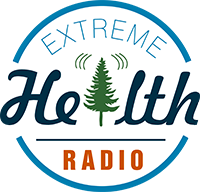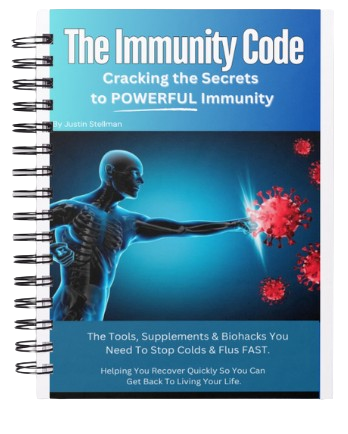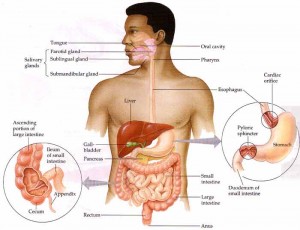Note: Click here to listen to any of our shows we’ve done on digestion! 🙂
Warning: What you’re going to read in this article is not mainstream…
How well does your digestive system function? Probably not well.
Digestion is a huge issue in the world today. If you search Google you can see digestion related terms are searched for literally hundreds of thousand of times per month. Why is this? Why are Rolaids and Tums (the makers of antacids tablets) multi billion dollar corporations?
Why can’t we digest our food? Is the problem getting worse? Is stress causing it? What gives?
Having listened to over 3,600 hours of health related lectures and interviews from prominent, doctors, researchers, scientists, authors as well as having read many books on the subject, I’d like to think I have a couple ideas that might help you improve your digestive system function.
Why is it so important that we digest our food?
It can be said that the cause of all diseases is the inablity to digest our food along with eating poor quality foods. It’s not what we eat that’s important, it’s what we digest, assimulate and absorb into our bloodstream that matters. There’s a big difference there.
You could be eating the best foods on the planet but if you’re not absorbing the minerals, vitamins and nutrients, what does it matter?
A Few Diseases Or Conditions Caused By Poor Digestion
- Cancer
- Colitis
- Constipation
- Crohn’s Disease
- IBS (Irritable Bowel Syndrome)
- Leaky Gut
- GERDS (Gastroesophageal Reflux Disease, Acid Reflux, Heartburn)
- Autism
- Diabetes
- Obesity
- Gas
- Bloating
- Eczema
- Psoriasis
- Seborrhoeic dermatitis
The list goes on. If you don’t want any of these nasty problems you have to learn how to digest your food properly.
Let’s take a look at the very first thing if you want to improve your digestive system function.
1. Stop Eating Food That You Can’t Digest
The very first thing to start is simply stop the source of the problem of the inflammation. When firefighters go into a burning house do you think they’re looking to make sure the couch is in the right place or that there is no trash on the floor? No. The first thing they’re concerned with is just putting out the fire.
It’s imperative to stop the fire of inflammation in your gut. What are these foods that cause inflammation? For many people it’s gluten in any form (cookies, cakes, crackers, pasta, pizza, spaghetti, ravioli, bread, cereal, grains or anything made from wheat). For others it’s products with high fructose corn syrup. Corn and sugar are some of the major offenders along with the lactose sugars in dairy. If you’re going to do dairy, it has to be raw, grass fed and preferably fermented into a kefir.
2. Start Eating Foods That Soothe Your Intestines
You can blend all of these foods into great tastings smoothies if you so desire. These foods below all have a gelatinous, gooey and slippery nature to them that help coat the inside of your colon.
- Raw eggs
- Chia Seeds
- Fresh Raw Aloe Vera
- Slippery Elm Bark
- Irish Moss
3. Chew Your Food Properly
This sounds simple but it isn’t. The WORST thing you can do is either eat while you’re rushed, angry or eat while multitasking. Two very important times of the day are when you’re eating and defecating.
Take time with your meals to fully masticate the food with your saliva when chewing. This allows the digestive enzymes in your saliva to start to break down the food before it even enters the stomach where it’s bathed in acid in a very low ph environment.
Swallowing whole chunks of food particles is less than ideal. I’d put money on the idea that the people who chew their food properly (no matter what their diet is) live longer and encounter less disease. I’m sure of it.
Anybody out there want to conduct a study?
4. Don’t Drink Water With Your Meals
When I’m in a resuraunt I see people sipping on water, juice or soda while they eat. That’s the worst thing you can do. Your stomach needs to have an ample amount of acid in order to help turn your meal into a liquid state in the right ph to enter your intestines.
If you dilute the stomach acid (which you are probably deficient in to begin with) with any kind of liquid, your body has to work harder and longer to turn that food into a liquid. This puts a great stress on the body. This is why people feel tired after their meals.
Digestion depletes the body of energy more than anything else we do.
Drink your liquids 1 hour before your meal. Ideally your food should have water in it, like a carrot or an apple.
The more food we eat that has water in it, the less water we need to drink. The entire notion of drinking 8 8ounces of water per day is completely erroneous.
5. Eat A Fermented Food With Each Meal
This is critical to understand. People don’t realize that if they don’t have proper intestinal flora (beneficial bacteria like lactobacillus acidophilus or acidophilus bifidus) they can’t digest anything.
No bacteria – No Digestion
We don’t really eat food to feed ourselves. We’ve got this concept all wrong. We eat to feed our friendly gut flora. They then break down and compost our food through biological transmutation. After they process that food they poop and pee inside of us. We then take that waste matter from the bacteria and process it through our intestinal villi inside our intestine.
Think of the inside walls of your intestine as being filled with millions of little villi (think shag carpeting from the 70’s). The villi take the minerals, vitamins and “information” (food is simply in-formation) and deliver it through the walls of the intestine directly into your bloodstream where your blood cells will carry the minerals and vitamins to the organs that are electrically sensitive the that particular mineral.
If you have a sterile gut (you do if you’ve had any antibiotic medication or birth control even one time), you have no carrier mechanism for your food. The bacteria is the middle man or broker between your food (and the minerals in it) and your organs.
No bacteria – No Digestion
I suggest eating food that is fermented because it contains “prebiotics” rather than just probiotics. Prebiotics are critical and more natural than taking pills. Some good fermented foods are, pickles, sauerkraut, kefir (water and milk), yogurt, kombucha, miso and mead.
6. Take Enzymes With Each Meal
Enzymes are not living, let’s get that straight. They are protein cells that help to break down foods. That’s why so many people eat raw foods because they’re loaded with enzymes. Enzymes are what will make a piece of fruit ripen on the vine or rot if you leave it out too long.
Enzymes are mostly created by your pancreas and involved in just about every cellular activity in your body. If you eat a steady diet of dead cooked food with no enzymes for a lifetime, your pancreas will be enlarged and it won’t be able to perform the job its supposed to be doing.
Instead it is creating enzymes every second of every day because the food you eat doesn’t have them. Eat more raw living foods and also take enzyme supplements during each meal. Dr. Bob Marshall at Health Line has a good brand and I also use the NOW brand.
7. Take Hydrochloric Acid With Each Meal
As we age we produce less and less hydrochloric acid in our stomach. Hydrochloric acid otherwise known as HCL is critical as the first step in not only preventing toxins from being absorbed but in actually breaking down our food. Actually chewing is the first step but having adequate amounts of HCL is critical if we want to begin digesting our foods correctly.
If you had acid reflux and the doctor told you that you have too much stomach acid and you he prescribed some sort of medication that reduces stomach acid, run the other direction. Rolaids and Tums are the common antacid tablets people take that are debilitating to the stomach over time.
When there is enough stomach acid, the acid will communicate to the lower esophageal sphincter to actually close in order to prevent stomach acid from entering and rising up the esophagus causing what feels like heart burn.
This is caused by low stomach acid and taking Tums or Rolaids actually reduces stomach acid over time which causes you to need to take them for longer and longer amounts of time.
What a brilliant business plan. Lie to people, damage their bodies so they’re forced to use your product to get rid of symptoms for the rest of their lives and make millions of dollars in the process.
I’m in the wrong business…
According to the work of Steve Hines it is recommended to take up to 8 650 mg pills of HCL as you can with each protein meal. Typically I’ll take about 6 per meal before I feel a warming sensation in my stomach.
The next time I’ll take one less than whatever amount gives me that warming sensation.
This allows me to rebuild my stomach acid while at the same time extract more nutrients from the foods I eat. Once the body is able to get more minerals and nutrients it will actually start rebuilding its own stomach acid. So this isn’t a therapy that needs to be continued forever.
For example, if you take 2 pills and feel a warming sensation in your stomach that means next time you can take one. It also means that you have lots of stomach acid, which is an excellent thing.
Other ways to get stomach acids are by eating lemons and Braggs Apple Cider vinegar with each meal.
If you want a 4 hour video overview of how the entire digestive process works, I highly recommend the dvd called “Learn How To Treat Yourself”
8. Eat At The Right Time
If you want to radically improve your digestive system function, then it’s critical to eat foods at the right time as well as stop eating at the right time. Many people will eat right before bed.
Doing this on a regular basis is a recipe for bad digestion.
Our bodies produce the most amount of hydrochloric acid during the middle of the day. This is when we ought to eat our heaviest meals, if we do eat heavy. Paul Nison has written a book called, The Daylight Diet where he talks about eating foods only during daylight hours. I think it makes a lot of sense. It’s just not natural for us to stay up really late with artificial lights and eat heavy foods at 12 am and then trying to go to sleep.
During sleep our bodies are supposed to be rebuilding, restoring, healing and gaining energy for another day, not digesting all night.
Do you ever wonder why you feel tired when you wake up after getting a solid 8 hours of sleep? You didn’t sleep deep enough because you ate too close to bed time.
Atom Bergstrom author of, Yes, No, Maybe: Chronobiotic Nutrition has even taken it a step further saying that each food has a specific time that it should be eaten.
His work is based off the theory that everything in nature is based on mathematics. The angle of the sun hitting the food corresponds to our organs which resonate with these same time breakdowns. We know scientifically that our organs actually all have a specific time where they process and operate most efficiently. It’s actually quite fascinating. I’ve listened to about 10 hours of him being interviewed and it wouldn’t surprise me if everything he’s saying is true.
Whatever the case, it’s important to eat our heaviest meals during the middle of the day and do the best we can to try to go to sleep on an empty stomach.
9. Food Combine Properly
Proper food combining is also something to consider for optimal digestive system function. When we eat heavy proteins and starches in the same meal, the body has to produce two different types of enzymes to break these foods down. They’re called protease and amylase enzymes. According to Harvey Diamond author of the groundbreaking book called, Fit for Life (which I highly recommend by the way), we should never consumed these two types of foods together. By doing so, neither of the two foods adequately gets broken down and digested.
But if we eat them with a salad separately, then the body only has to produce one type of enzyme to digest it and as a result the body has much more energy and less build up of waste occurs in our colon. Fecal matter that can’t be excreted through the rectum ends up lining the insides of our colon, thereby decreasing the surface area of the villi to absorb nutrient waste from the beneficial bacteria that should be in our gut.
These villi are absolutely critical to transfer nutrients from inside our intestines to our blood stream. If we have a lining of impacted excrement blocking our villi from that absorption, that causes all kinds of diseases and conditions we’d rather not be dealing with.
I still follow the food combining principles I read about in his book and believe they help me tremendously. I’m sure the ideas in his book would help you too.
There is another book called, the Gut and Psychology Syndrome that I highly suggest you read. Dr. Campbell-McBride talks about the connection between our gut and our brain. The stomach has orders of magnitude more nerve endings than our brain and spine have. The seat of our intuition happens in our gut as well as our pineal gland.
This is a fascinating read for anybody interested in digestive system health.
There are herbs like cassia pods and other plant substances that can increase the peristalsis of the colon. They can cause a constriction to happen inside the gut. I typically don’t recommend them because they can be relied upon like a laxitive. The idea is to strengthen the colon to perform this action by itself.
10. Try Two Supplements That Work
Steven Hines N.D. recommends two supplements that really work well for helping to heal the gut.
They are…
Mastic Gum
Allergy Research Group Mastica Chios Gum Mastic — 500 mg – 120 Capsules
L-Glutamine Powder
L-Glutamine Powder 227grams
This is a 14 day protocol or 21 day protocol according to your needs.
Mastic Gum – 1,500 milligrams twice daily on empty stomach
L-Glutamine – 2,000 to 3,000 milligrams (2 to 3 grams) powder twice per day on an empty stomach
Let me know if there is anything I’m missing here. I know this wasn’t an exhaustive article but I wanted to keep this information simple and easy to follow and I wanted to keep it on the cheap. I didn’t want to add tons of supplements that cost people a lot of money.
If you can think of any other useful advice, please comment below to share what has worked for you!



